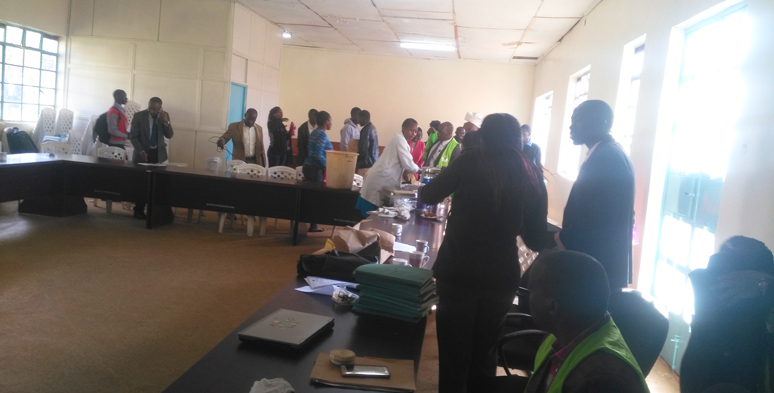
The Commission presided over University of Kabianga (UoK) student's council elections on 4th, 5th and 15th March 2019. The University began as a Government school called Kabianga Teachers' Training College in 1925 and in May, 2009 it was elevated to Kabianga University College. UoK is located in Belgut Constituency, Kericho County.
UoK has a Students Electoral Commission (SEC) that is mandated with overseeing and running university elections. SEC employs the Electoral College system where students (voters) cast ballots for delegates also known as "electors". The delegates afterwards vote for the student leadership.
In this year's elections, students elected thirty members of Electoral College (delegates), the elected delegates comprised of three (3) representatives from each campus of the University. These delegates then voted in the seven (7) members of the executive, namely Chairperson, Vice Chairperson, Secretary General, Secretary for Finance, Secretary for Academics, Secretary for Health, Catering and Accommodation, and Secretary for Sports and Entertainment. Two (2) of the ten (10) UoK campuses, i.e Sotik and Kapkatet campuses had their delegates elected unopposed, as a result no election was conducted at their venues. The election to vote for delegates took place on 4th and 5th March, 2019, while the election to vote for the members of the executive took place on 15th march, 2019.
The returning officer for the elections was Dr. Wangila Phanice, Lecturer Analytical Chemistry. She was deputized by Dr. Isaak Naibei, HoD Accounting Finance and Economics. The two expressed their profound gratitude for the logistical and technical support accorded by IEBC in the conduct of the elections. The two elections took place smoothly and in an orderly manner with no incident or accident reported. The two expressed their profound gratitude for the logistical and technical support accorded by IEBC in the conduct of the elections.
Such exercises are important to the Commission as they foster ideal democratic principles and good working relationships with stakeholders in the society while enhancing public trust and confidence in the Commission.